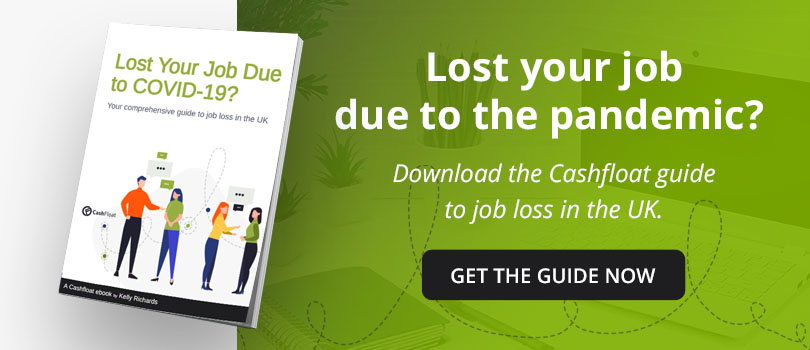Dealing with redundancy? As part of our job loss guide, we presents an informative and helpful redundancy survival kit to help you pull through, emotionally and financially. Read on to get some really useful tips.
Lost Your Job? What Can You Do? – Chapter Seven

Understanding Why It Happened and Moving Forward
When redundancy hits, it comes as a shock no matter whether you are a young or older employee. Coping with the emotions of sadness, fear and depression will be easier if you can get some understanding about how and why this event has happened.
Many well-meaning friends and relatives will say that it’s not the end of the world and will point out that you can get benefits while you search for another job. Still, using the redundancy survival kit will be necessary as it can be an overwhelming experience, especially for someone who is young.
The important aspect in the redundancy survival kit to focus on, is that it is not your fault. You have not lost your job because you are incompetent or did not work hard enough. The market forces that are often in play can create an economic downturn which makes redundancies inevitable so the first thing to remember is that this can and does happen to many people.


Get yourself some emotional support
Get feedback from your employer and move forward
Take control of your future
Give your life structure
Join a recruitment agency
Get your CV in order
Consider getting more training
Get back to work
Receiving a payout after you have been made redundant is never going to compensate for the loss of your job. The emotional fall out from losing your job is going to have an impact no matter how well prepared you may have thought you were.
Although you may be asking the eternal question of ‘why me?’, it is important not to take the process personally. If a job role is going to go it is not because you did not fulfil it to the best of your ability. Often the company is undergoing a restructure in order to save on costs and it is just down to a business decision.
Don’t worry about telling people that you have been made redundant. This is an event that many other people within your circle will have gone through. If you need financial support look to family for this and for emotional support you will be able to lean on close friends.

Once you have grasped why you have been made redundant, get some feedback from your employer about how you performed. You can also ask for a reference to help you get your next position. Having an exit interview can be an excellent way to put things into perspective and to help you move forward.
Having lost your job you may be feeling worried about a lot of things. Paying the mortgage and the bills, wondering whether you’ll be living off, if you should cancel your holiday or whether you will ever get another job. At this point it is vital to take back some control of your life so that you do not succumb to feelings of helplessness.
Having signed on as unemployed and claimed your benefits, now is the time to start looking for a new job and to do this you need a positive attitude. However, don’t expect to succeed immediately. Unrealistic expectations about getting a new position may end in disappointment especially when the economy is in a downturn.
But just making applications and setting up interviews may not be enough to help you secure a new job.

In order to have some control it is important to have some structure to your daily life. So, treat your job search as if it was a job. Set aside time for updating your CV, learn about how to give the best ever interview and create a daily timetable.
This should include time off as well. It would be unrealistic to expect to focus from 9 to 5 on job hunting so factor in some time for exercise (a great way to avoid depression) and relaxation.
While you are unemployed, use this opportunity to create a budget which will help to cut down on bills and this kind of activity will also make you feel that you are contributing to the household and not being a drain. The most important thing to try avoid is borrowing payday loans – this will only end in more debt building up at a time when you have no sure way of paying it.
A realistic expectation to get another job would be between three to six months so don’t expect ‘Rome to be built in a day’.
If you have been made redundant from your job and have never sought work before, signing up to a recruitment agency is a step you may not have considered. While you may want to get another role in the same area of your expertise, looking at a temporary appointment in another area or even taking on a role with less salary can give you a leg up in your working life.
Temporary roles can often lead to permanent positions and at an agency you will have an indepth interview that will include some practical and psychometric tests that could throw up some unexpected strengths of which you were not aware.
Having signed up, do not let the grass grow and sit back waiting for an assignment. Keep in touch and go to more than one agency and your chances of getting work will increase exponentially.
A good CV is often the key to getting an interview and if you reach that stage you are half way to getting a job. Don’t be afraid of highlighting your successes on a CV but make sure that the jobs, skill and dates of employment are all accurate. If necessary get a professional to write the CV for you especially if your strengths are in speaking and not writing skills.
A period of unemployment can be looked upon as an opportunity to gain some more qualifications and to increase your skills. Courses in the latest developments in IT are always a good idea so if you have considered yourself something of a technophobe now is the time to grasp the nettle and get to grips with the 21st century technology. Before considering taking out a short term loan to cover the cost of these courses, check what grants are available, as the government have various benefit schemes.
Watch this video by myfuturerole.com as they show you 10 things to consider if you are made redundant.
While you may feel that taking on a more junior role than the one you lost is not worthy of consideration, it could prove to be a positive move. Taking on a role that is a lower grade in a different area of expertise should not feel degrading.
Part of the redundancy survival kit is looking at the positive aspects, and the benefits of getting even more experience by developing new skills. If the job is an entirely new area of employment then ask about training courses so that you can quickly improve and move upwards.
If you have experienced a period of unemployment, getting back to work can be a scary process. However, don’t worry about starting a new job. Remember the feelings that you had when you were made redundant and contrast these with the prospects of meeting new people and doing well at your new job.


The redundancy survival kit conclusion
It is worthwhile focusing on the fact that while you have been out of work you will have developed some life skills. Think about the initiatives that you took to get a new job and how you adapted to unemployment. These skills and the organisation you used to get another job are just what employers are searching for so you should feel proud and not daunted.
The final point in the redundancy survival kit is recognising that believing in your own worth is a skill in itself. Having secured a new job, you should enjoy the moment and congratulate yourself on coming through a difficult life changing event.




